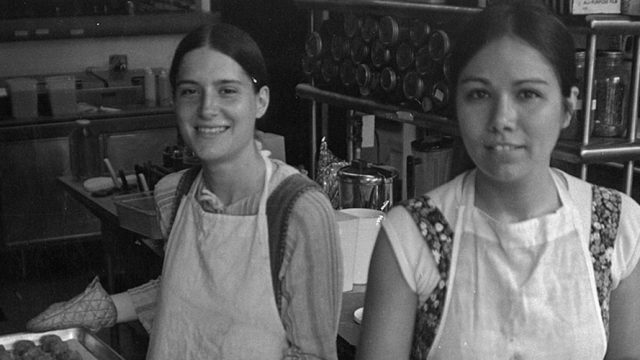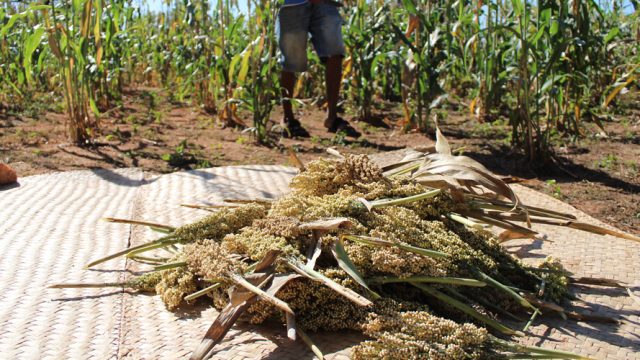Deanna Payne knew that only a miracle could make her baby live.

Deanna Payne woke up one Sunday in June 2019, the morning light streaming through her window. She planned to go hiking with her husband, Chris, and their children, Ivy and Winston, later that day.
But something was wrong.
“I felt like my water may have broken,” Deanna says. “But I was 17 weeks pregnant.”
The Start of Something
Based on her doctor’s orders, Deanna postponed her family hike to stay home and rest.
After an ultrasound, her OB-GYN suspected preterm premature rupture of membranes (PPROM), the leaking of amniotic fluid before 37 weeks of pregnancy. Deanna was referred to the Labor and Delivery Unit at Kettering Health Main Campus. There, they confirmed Deanna had PPROM and that her amniotic fluid — the fluid needed to protect the baby from injury and temperature changes — was low.
After a high-risk ultrasound, Deanna and Chris got earth-shattering news: their baby, their second son, had a one percent chance of survival.
The longer Deanna remained pregnant after her membrane ruptured, the greater her risk of infection. And if their baby did survive, he risked being born with undeveloped lungs. To protect Deanna’s health, the doctor presented the option to terminate the pregnancy.
“We were devastated and didn’t know what to do because termination just wasn’t in the cards for us,” Deanna says. “We just spent 45 minutes watching our son on an ultrasound, scared, unsure of the future.”
Ultimately, Deanna and Chris decided to continue their pregnancy, ready to face whatever came their way.
“We heard the heartbeat, and we just weren’t OK with terminating the pregnancy,” Deanna says. “And we were just hopeful that he was that one percent.”
Deanna was instructed to go home and stay on bed rest until their son could potentially survive outside the womb, known as the point of viability.
Terrified of what could happen, Deanna and Chris held onto their faith that everything would be OK.
Finding a New Normal
Deanna spent six long weeks on bed rest, looking ahead only one day at a time.
“Every day that I remained pregnant was another win for us,” she says.
At 23 weeks pregnant, Deanna was admitted to the Labor and Delivery Unit at Kettering Health Main Campus. There, her doctors monitored her and her son.
Deanna and her family live in Sidney, Ohio, United States, about an hour from the hospital. But that didn’t stop Chris from visiting with the children multiple times a week. Over the next few weeks, the family found their new normal.
“We would have family dinner, and then he would return home and come back again on Saturday afternoon and stay overnight. Just the two of us,” Deanna says. “And then he would take home my laundry, clean it, and bring it back. He’s the real superhero here.”
Along with her family and friends, Deanna found comfort in the support of her nurses. They prayed and talked with her, providing emotional and spiritual support. They also helped create special moments for her in the hospital, like a maternity shoot and a spa day with a haircut.
“These ladies helped me make it through 60 long, emotional days where we didn’t know what the outcome was going to be,” Deanna says.
But perhaps the thing that helped her the most was the paper chain that hung in her hospital room.
Going Home Soon
One of Deanna’s nurses suggested she make a paper chain that counted down to her son’s due date.
Every morning, Deanna woke up and cut off a link from the chain. She often FaceTimed with Winston and Ivy, who were six and one, showing them the chain’s shorter length and explaining that their brother and mom would be home soon.
“It was a visual reminder that we were getting closer to our goal.”
But Deanna never reached the end of the paper chain.
One Chapter Ends and Another One Begins
While at Labor and Delivery, Deanna planned and hosted Ivy’s second birthday party. Kettering Health Main Campus became an extension of home as her loved ones gathered in the dining hall to celebrate Ivy.
The day brought some normalcy back into her life. But then she felt something was different.
“I said, ‘I can’t pinpoint what it is, but I feel like the baby is coming.’”
Tests showed that Deanna had a partial placental abruption, which occurs when the placenta detaches from the uterine lining. This causes internal bleeding for the mother, keeping nutrients and oxygen from the baby.
After receiving steroids over the next few days to help her son’s lungs develop, Deanna was induced and later wheeled into the operating room. In the early morning hours on October 3, Deanna’s son, Rhett, was born — at 31 weeks and three days.
Deanna held her breath, willing Rhett to take his first. She recalled the risk of him having underdeveloped lungs. For several long seconds, the room was silent. Finally, Deanna and Chris heard the sound they’d been waiting for.
“I had a sense of relief,” Deanna says, “but was scared and uncertain about any other significant challenges Rhett might face.”
Although Rhett’s lungs were developed, they were weak. The NICU team quickly took Rhett to be intubated. He spent 32 days in the NICU, with Deanna and her family staying close by in the Ronald McDonald house.
Seeing her son in the NICU made Deanna feel helpless.
“You can’t do anything for your child,” she says. “And that’s a hard spot to be in as a parent.”
But Rhett’s NICU nurses, nicknamed his NICU mommies by Deanna, helped the family through the challenging month. They assured Deanna that Rhett was healthy and thriving. And that “this is just going to be a sentence in the story at the end of the day.”
Rhett was cleared to leave the NICU in early November. Deanna and Chris carefully brought him home, excited and nervous.
A Fighter
Although happy to finally have Rhett home, Deanna was terrified he was too fragile for life outside the hospital. She took Rhett to a high-risk clinic at Cincinnati Children’s every month for two years. Rhett was the 1 percent, but she worried the shortcomings would catch up.
“I was waiting for the pendulum to swing the other way,” she says, “because it was unbelievable that everything remained stable.”
Rhett is now almost five years old, and Deanna has learned to let go of that anxiety. If you look at him, you’d never know the challenges he faced. He loves T-ball, his big brother and sister, and helping his dad mow the lawn.
Like his mother, he’s a fighter. He was there when Deanna remained hopeful despite her fear during six weeks of bed rest. He was there when she counted down the days until her family was reunited during her two-month stay in Labor and Delivery. And he’s been by Deanna’s side for the last five years, proving miracles exist.
“Strength, perseverance, and faith,” Deanna says. “Those are the three things that I want him to think about when he learns about his story.”
The original version of this story was posted on the Kettering Health news site.








